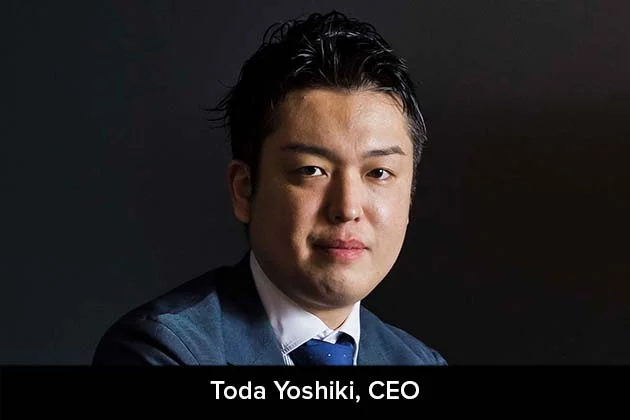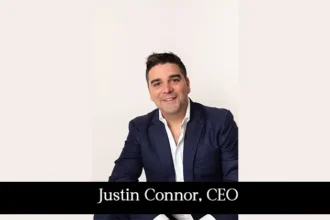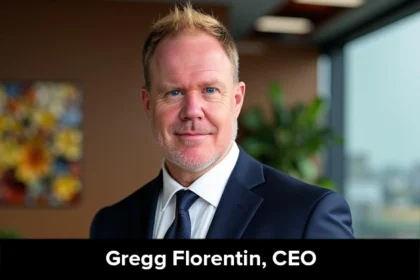Cover Story
The global Tourism and Hospitality industry has been in action for a long time, and it has been a major source of attraction for numerous countries. It is not just a source of attraction, but it has also helped countries generate revenue out of it. The influx of tourists helps revive the local small businesses, promotes employability, boosts the economy and infrastructure.
However, one roadblock that all these opportunities face is the language barrier. Since the tourists come from different linguistic geographies, the local community faces a challenge in communicating with the guests. There are chronic personnel shortages and aspects of coping with languages.
According to data from the Ministry of Health, Labour and Welfare of Japan on the job separation rate, the hiring rate is almost equal to the turnover rate. Regarding languages, the accommodation facilities cannot cope with multiple languages, leading to lost opportunities. In addition to a shortage of labour, especially ones qualified in understanding various languages, it is also costly to allocate staff who can serve foreign customers.
Toda says, “Our current services were developed from this, combined with the potential for using natural voice-operated services”.
A solution to this is the development of concierge applications that can use AI speakers with graphics supporting multiple languages and multilingual chat functions to improve profitability for accommodation facilities. It can also enhance their services further, be useful for marketing, and give a better work-life balance for employees. This is exactly what TradFit is doing with their revolutionary product, removing the roadblock of communication in the service industry. Here in this article, we try to know more about the business and its vision directly from the person at the helm, Toda Yoshiki, CEO at TradFit.
The beginning
What triggered TradFit’s inception was that Toda’s love for travel and sightseeing gave him raw insights into language communication difficulties outside English-speaking countries. The passion for travel coupled with the determination to the national tourism policy led to the inception of TradFit.
Toda says, “Our current services were developed from this, combined with the potential for using natural voice-operated services”. Moreover, while exploring and researching which industries or sectors have the major challenges and pains, they hypothesized that the service industry has the major social challenges and pains that voice services could solve. People at TradFit have conducted the verification by interviews and prototypes. They discovered that the accommodation and restaurant industries have a widespread labour shortage and high mobility of human resources.
Addressing the problems
In Japan, where the working population has been declining, TradFit receives inquiries from various industries. Not limiting themselves to the accommodation and tourism industry, they provide services to various other sectors. In addition, if one looks overseas, even in countries where the literacy rate is low, people can obtain information and enjoy services with their voices. This would contribute to the resolution of imbalances and inequalities in the world.
By talking to the AI speaker, you can get answers to frequently asked questions, search for restaurants, and get directions to nearby sightseeing spots. Orders for amenities and room service rental can also be placed on the management screen via the AI speaker. Once done, they can be confirmed on a smartphone, preventing order errors and reducing the time spent on the phone.
If the content of the conversation is not in the database, or if the AI speaker cannot respond to the content or language, a QR code is displayed on the screen. The customer’s own smartphone can read this to activate the multilingual chat system and continue the response. The multilingual chat system is available in 16 languages, which cover main traveler’s language to Japan. By sending questions and requests in the customer’s native language, the chat system will automatically translate the content and correctly understand the content of the customer’s request to respond. This will eliminate language barriers for customers and enable hotel staff to provide hospitality to each and every customer without being overwhelmed by answering phone calls, which will also improve operational efficiency.
TradFit’s services, such as “concierge applications” and “chat concierge system” for tourist and lodging facilities that are used with multilingual voice agent terminals with images. Also, “management screens for lodging facilities” can seamlessly connect them to streamline operations such as orders from tourists and guidance services. This will solve the shortage of workforce and multilingual support for lodging facilities. In addition, hotel staff will be able to provide services that emphasize hospitality to each and every guest without being overwhelmed by answering phone calls, thereby improving the satisfaction level of the guest’s travel experience.
Instead of being overwhelmed by inquiries from guest rooms, it will be possible to provide services that emphasize “hospitality” in response to requests from guests. For example, it will be possible to make recommendations for facilities, tenants, and services inside and outside the accommodation facility and accept room service and loaned equipment. It is also possible to improve the satisfaction level of the travel experience based on local information rooted in the region. In addition to non-contact voice operation, a chat system combining AI and human operators can be used to centrally manage the system, including responding to special requests from travelers.
Other service horizons
Apart from the core services offered, TradFit is exploring other options to expand it’s service capabilities. The data that be being obtained from customers will be accumulated in multiple languages, making it possible to understand the attributes of the guests. For example, by acquiring information such as the preferences of women in their twenties in the U.S., it will be possible to conduct predictive marketing, and when the data is converted into big data, it will be possible to extract the characteristics of each country’s attributes, age, gender, etc., and use AI technology to perform deep learning. By using AI technology and deep learning, personalized marketing can be done, and more service improvements are possible.
TradFit’s services, such as “concierge applications” and “chat concierge system” for tourist and lodging facilities that are used with multilingual voice agent terminals with images.
Also, by analyzing the accumulated big data, they can visualize guests’ requests at peak and off-peak times, leading to further improvements in operations, services, and marketing. Once the coordination with their Property Management System (PMS) that they are currently working on is complete, they will be able to further improve operations, services, and marketing of group assets tailored to various types of attributes without identifying personal information. This will allow them to provide even more finely-tuned guest services.
Differentiating factors
Numerous players in the market are trying to provide translation services to businesses. However, the way TradFit has positioned itself against all other competitors has been remarkable. They are heavily invested in R&D and building up a dominant position with major domestic and foreign companies such as Amazon, Google, Microsoft, Sony Group, etc. that makes it difficult for other companies to gain access. TradFit already has powerful patents, related to voice assistant services, including software as well as hardware. Software also covers applications and browsers in hardware that placed in the room, and in smartphones and tablets owned by the consumers. These patents cover all the main systems that hotels use in Japan, other Asian countries, the EU, and the U.S.
Further elaborating on their strategy Toda says, “We have built up dominance through the acquisition of the patents for business, development, data volumes, and other core areas”. By accumulating large volumes of data, the company has rapidly improved its services and quickly undertaken intellectual property strategies. by having those patents, other competitors cannot provide services similar services.
TradFit has established a full patents strategy, and its strength of it has been continually improving. Among the powerful patents that TradFit has, a few patents are included as follows.
Smart Travel: By using the basic patented technology “Smart Travel”, the company will be able to exclusively provide “travel information on restaurants, sightseeing spots, activities, etc. according to the guest’s preference by accepting the guest’s request from the AI speaker”, which is expected to increase the sales and profits of the service. The service is expected to increase sales and profits. A number of other patent applications have been filed, and we are building a strong patent portfolio to expand our exclusive domain that only TradFit can provide.
Room Smart Control: By using the basic patented technology “Room Smart Control”, they will provide a suited room environment exclusively. Speaking about an example, room temperature and lighting to be automatically optimized for the guests by accepting their requests from AI speakers”.
Automatic Robot Transportation: Using the patented technology “automatic robot transportation”, it will be possible to exclusively provide “transporting the sheets, bath towels, amenities, cleaning tools, etc. used for room making to the guest room by the transportation robot”, and it improves the business operations of the accommodation.
Multilingual Chatbot: Using the basic patented technology “multilingual chatbot,” it will be possible to exclusively provide “switching to a multilingual chatbot instantly by simply reading the QR code displayed on the AI speaker.
Work Culture
A great company is nothing without it’s employees and work culture. TradFit’s services are powered by a versatile team of industry experts, formerly from Google, Apple, and Amazon. They have expertise in speech recognition, natural language processing, machine learning, and deep learning which can be used to strengthen their products. “Under our inspiring and creative company culture, engineers are encouraged to handle cutting-edge technologies such as voice interfaces, natural language understanding solutions, human-computer interaction technologies, and more to make SaaS products of excellence,” says Toda.
TradFit’s multicultural flat international team with diverse backgrounds promoting a diverse culture prevents them from one-sided views. TradFit has continually rolled out better services and business insights by analyzing various big data using machine learning and artificial intelligence.
Roadmap to the future
Responding to our question on what they envision for the TradFit’s future, Toda says, “Our vision is to ‘solve inequalities and disparities throughout the world”. There are always issues to be tackled in any age. However, they hope to contribute in their way with their partners to solve the problems that the COVID-19 pandemic has exposed. As for their prospects, they plan to contribute and extend to following domains and industries.
- Developing services as a B to B to C Vertical SaaS centered on the tourism and lodging industry:
COVID-19 countermeasure, contactless, non-personal, manpower saving while protecting jobs, remotely possible. Expand to industries where DX will rapidly advance in the future due to labor intensity, labor shortages, and dependence on subsidies, and where horizontal expansion across countries and industries is possible through Vertical SaaS.
- Solving issues in various labor-intensive industries with our services and collaborative (co-creation) partners:
Solving labor-intensive issues such as labor shortages, high turnover, and difficulties in multilingual support, together with our original services and collaborative (co-creation) partners who have strengths in technology and customer channels.
- Expansion into healthcare, Fintech, MaaS, and smart cities, which are social infrastructure:
Expansion into healthcare, various financial institutions, MaaS (cars and logistics), and smart cities, which are social infrastructure, such as hospitals and nursing care.
Also, they realize that overly focusing on growth alone would trap them in seeing nothing but sales. And this would cause them to deviate from the ‘three goods’ principle (good for the seller, good for the buyer, and good for society) they value. They are steadily working on their business together with various partner companies and the policies of the prefectural governments, focusing on solutions to social issues in Japan. Domestic and overseas collaborative partners will begin to bring world-first and industry-first business to other countries and aim to IPO. But an IPO is just one path to growth and not a goal in itself. They are building business realistically without pursuing easy money. They wish to collaborate openly with their partners to solve problems in the world based on the ‘three goods’ principle and the concepts of the SDGs and ESG.












